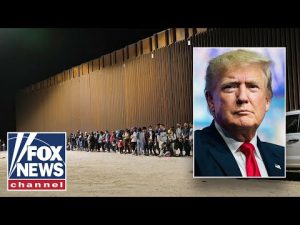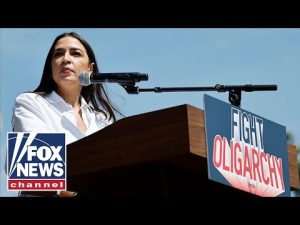**A Conversation in the Shade: Unpacking America’s Political Pulse with Charlie Kirk**
In a scene that could have been lifted from a classic American drama, a young man named Demetrios found himself in the warm embrace of the sun but the shade of a philosophical debate. After a two-and-a-half-hour jaunt from the suburbs, with the anticipation bubbling over inside him, he was finally face-to-face with the conservative commentator Charlie Kirk. With a blend of humor and heat, both figuratively and literally, the two dive into a conversation that hits on a variety of hot-button issues swirling in the political air.
Demetrios, a product of the Wheeling High School system—yes, the very same Wheeling that might have its fair share of colorful school colors—came armed with questions and a healthy dose of admiration. Drawing inspiration from Kirk’s ability to navigate the turbulent waters of contemporary issues with logic and reasoning, he was not starstruck but instead eager to engage. With a shared sense of regional pride and wonder at how someone from Wheeling could rise to such heights in the political world, he made it clear that he intends to hold Kirk accountable on the issues, especially that of the Israel-Palestine situation, which remains a hot topic in many conversations today.
As they began unpacking the complex issue of Israel’s right to exist, Kirk laid down a foundational viewpoint with clarity. He expressed that Israel is not just a mere coincidence of geopolitics but rather a miracle—a nation founded after centuries of hope, struggle, and survival. Demetrios, likely with thoughts racing through his mind, was asking for a deeper discussion on the legitimacy and existence of both Israel and Palestine, demonstrating a willingness to engage seriously with this multifaceted scenario. The dynamic exchange highlighted the challenge of reconciling the narratives that define both sides while emphasizing a yearning for clarity on each party’s right to self-determination.
In an unexpected twist, the dialogue veered towards understanding the identity crisis of Palestinians and the geography in question. Although Kirk put forth the view that much of this land has a long-standing historical connection to the Jewish people, Demetrios twisted the conversation into evaluating the realities on the ground today. The two sparred lightly, each presenting their perspectives while trying not to lose sight of the complexities of history that shape the current debate. After all, the morality of nationhood is rarely a clear-cut issue, resembling more of a winding road strewn with historical baggage than a straight path to resolution.
As Kirk and Demetrios continued to dissect the situation, they indeed stumbled into the classic debate of “who belongs where.” The conversation echoed the sentiments of many—why does a small Jewish-majority country draw so much ire and focus when there are numerous Muslim-majority countries in the world? The implication was clear: understanding historical narratives is just as crucial as recognizing current realities. Kirk highlighted the many Arab-majority nations, all while calculating what the implications of such narratives mean for American policy and public perception.
Throughout the dialogue, there was a recurring theme of seeking clarity in complicated matters. A significant part of their discussion centered on the idea of practical governance and the potential futures for both Israel and Palestine. With a call for a peaceful resolution, Kirk suggested that while Hamas poses a serious threat, addressing the existing leadership structures and fostering conversations—even with the corrupt Palestinian Authority—could provide an avenue for better outcomes. Demetrios appeared to resonate with the idea of advocating for peace but remained aware of the omnipresent complexities that could lead either party astray.
As the sun began to set on their spirited conversation, both men emerged with a nuanced understanding of the landscape—politically, historically, and morally. The dialogue between Kirk and Demetrios served as a reflection of America’s broader political maneuverings, showcasing that even in a polarized environment, frank discussions can lead to greater understanding. In the end, the encounter not only entertained but also illuminated the intricate dance of perspectives that are as diverse as the country itself. In the political theater of America, like in the shade where they spoke, illuminating conversations are vital for forging a path toward unity amid discord.







